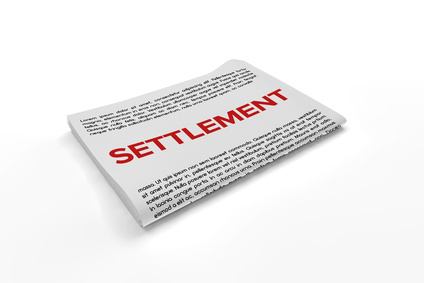If your employer has offered you a settlement agreement*, you might think you can just deal with it on your own. 
But it’s not as simple as that.
By law, you must take independent legal advice before you sign. What’s more, the name of your legal adviser must be included on the agreement, otherwise it won’t be valid.
Who can be your independent legal adviser?
You need an adviser who is truly independent. Because they are on your side, it helps ensure you get the best and most realistic outcome. For that reason, they must be:
- NOT employed by your employer or an associated employer
- NOT acting on behalf of your employer or an associated employer
There are other criteria to ensure your adviser has the specialist qualifications, knowledge and experience to do a good job for you. So, they must be:
- A qualified lawyer, barrister, solicitor, authorised litigator, or a Fellow of the Institute of Legal Executives who works in a solicitor’s office
- Someone from an independent trade union or advice centre who is certified and authorised as competent to give legal advice (you need to see this in writing)
As with many legal matters, there are some exceptions to consider.
If you work for the trade union (or an organisation that is associated with them), that trade union official will not count as ‘independent’.
Similarly, if you work for the advice centre (or an organisation associated with them) OR if you pay for their advice, it won’t count as ‘independent’.
If your solicitor has been appointed by your employer for the purpose of advising on settlement agreements, they count as ‘independent’ but ONLY if their payment is not based on whether or not employees agree to settle.
If you and your colleagues are given legal advice as part of a group PowerPoint presentation, it is allowed ONLY if you ALSO have a one-to-one consultation with a solicitor afterwards (and that’s when you sign the agreement).
By law, your independent legal adviser doesn’t HAVE to tell you if the settlement is a good deal for you. They only need to explain the terms and implications. For that reason, it’s wise to double-check the letter of engagement so you are clear what’s included and what’s not.
Why choose Paul Doran Law as your independent legal adviser?
As specialist employment lawyers, we can act as your independent legal advisor. We have years of experience in dealing with cases like this.
If you choose Paul Doran Law to act as your independent legal adviser, we WILL let you know if the settlement you’re offered is a good one, and whether there is anything you could do to improve it.
Yes, we help you negotiate a better deal.
We will explain the terms of the agreement and what they mean for you. In particular, we’ll tell you about your right to take your employer to the employment tribunal – this is because you give up that right when you agree to a settlement.
By the way, you don’t have to worry about the legal fees, because your employer will usually pay.
What if your employer breaches the agreement?
You’ll also need to take independent legal advice if your employer fails to honour their side of the deal.
Your specialist employment lawyer (that’s us!) will help clarify whether or not they did, in fact, breach the contract, and which clause or clauses they failed to implement.
We’ll then help you decide whether you want to force your employer to comply with the agreed terms, or if you want to seek damages instead (that is, to make a claim for payment by way of compensation for their non-compliance).
When we know all the details of your case, we’ll let you know if it’s worth the time, money and effort of entering into litigation.
We’ll also advise you on the place where you’ll need to issue your claim.
- If your settlement was agreed before your employment was terminated, or at the same time, any claim will be dealt with in the employment tribunal.
- If your settlement was agreed after your left your job, you’ll have to make a claim in the civil court.
Finally, we’ll help you bring a claim to the relevant forum.
In short, our help will give you the best chance of success.
Further reading
For more information on this subject, you might find our other articles useful:
- What is a settlement agreement?
- How do I get a settlement agreement?
- Should I accept a settlement agreement?
* Settlement agreements are known as compromise agreements in Northern Ireland
Need help?
For a free initial review of your case, call 0808 168 7288 or complete a Free Online Enquiry.
We have already helped thousands of people to win millions of pounds in compensation.
You have a choice of ways to pay, including ‘no win, no fee’.
